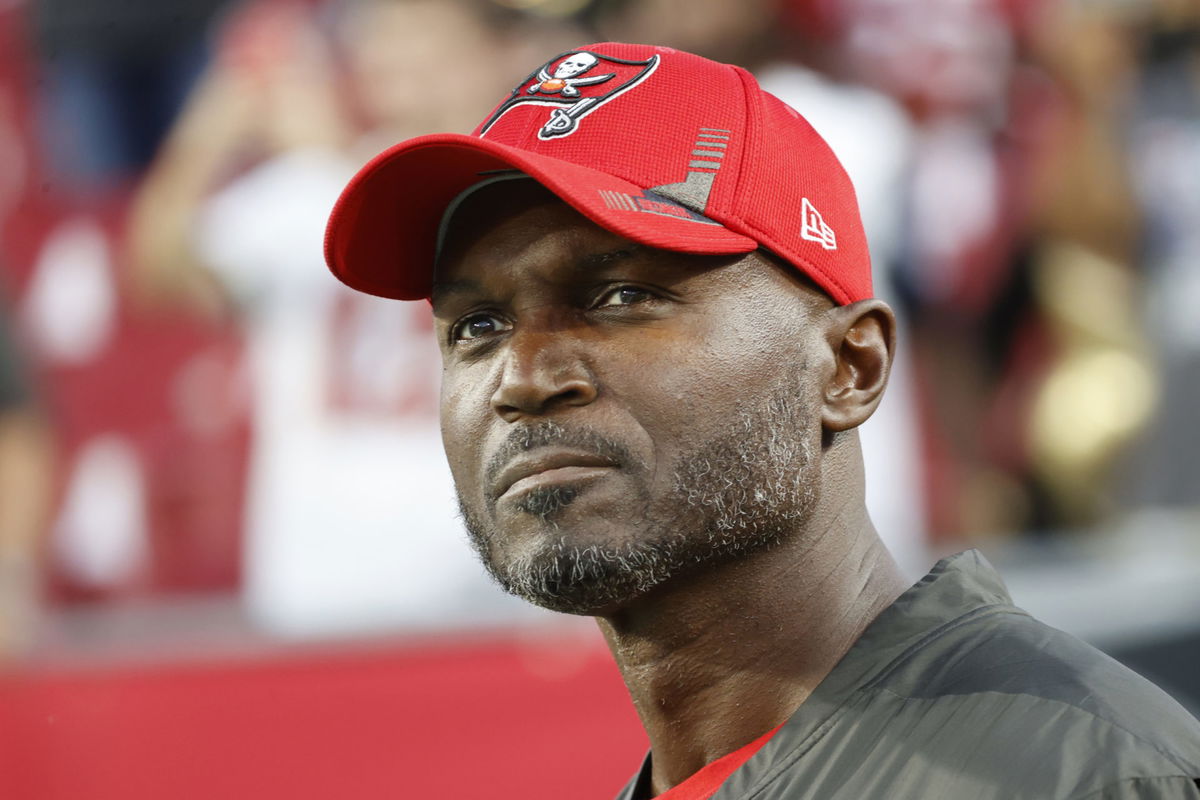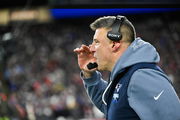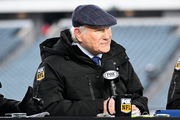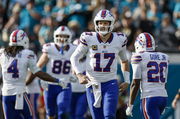
USA Today via Reuters
Sep 9, 2021; Tampa, Florida, USA; Tampa Bay Buccaneers defensive coordinator Todd Bowles looks on before a game against the Dallas Cowboysn at Raymond James Stadium. Mandatory Credit: Kim Klement-USA TODAY Sports | Reuters

USA Today via Reuters
Sep 9, 2021; Tampa, Florida, USA; Tampa Bay Buccaneers defensive coordinator Todd Bowles looks on before a game against the Dallas Cowboysn at Raymond James Stadium. Mandatory Credit: Kim Klement-USA TODAY Sports | Reuters
The Week 8 clash between the Tampa Bay Buccaneers and the New Orleans Saints delivered a controversial moment that drove the coach and his players into a state of furious disbelief. Buccaneers’ safety Antoine Winfield Jr. executed a spectacular, momentum-swinging play, recovering a fumble and sprinting into the end zone for what appeared to be a decisive touchdown. However, the head referee, Ron Torbert, prematurely stopped the play after an almost inaudible whistle, thereby deeming the touchdown null and void.
Watch What’s Trending Now!
The alleged whistle has since been acknowledged as a referee error, especially since TV recordings failed to capture any sound. Buccaneers’ legend Gerald McCoy was significantly frustrated by the event, expressing his strong opinion on an X post:
“Refs have to start getting fined or something, man. That’s horrible!!”
ADVERTISEMENT
Refs have to start getting fined or something man. That’s horrible!!
— Gerald McCoy (@Geraldini93) October 27, 2025
While McCoy never had a touchdown taken away from him, he could certainly empathize with Winfield’s position. Throughout his own career, McCoy was involved in several controversial referee calls, particularly concerning roughing-the-passer penalties, that angered both fans and analysts.
Despite the swift and furious fallout, the referee’s mistake ultimately did not impact the final outcome, as the Buccaneers decisively beat the Saints 26-9. Irrespective of the win, what truly frustrated Head Coach Todd Bowles was the pattern of poor officiating. This incident was compounded by the fact that Quarterback Baker Mayfield had already voiced sharp criticism of the referees following the team’s Week 7 loss to the Lions over a similarly impactful mistake.
ADVERTISEMENT
Todd Bowles loses his calm as officials make mistakes in week 8
A significant officiating error marred last Sunday’s game, igniting a heated discussion about referee accountability within the NFL. The controversy centered on a play prematurely ended by an erroneous whistle, which instantly nullified Winfield’s score on the far side of the field. Despite both teams continuing the play and the recovery being indisputably clean, the result stood. Referee Ron Torbert’s post-game comment acknowledged the fundamental issue, he said.
ADVERTISEMENT
“We were able to award the defense the ball after the fumble, but because the whistle had been blown, we could not award the advance afterward.”
This explanation, however, has failed to quell the outrage, particularly since video replays confirm that no audible whistle can be heard on the television broadcast, strongly suggesting a clear referee mistake. Bucs Coach Todd Bowles, understandably furious, stated,
Top Stories
Mike Vrabel Threatens to Bench Locker Room for Super Bowl After Patriots Win vs Broncos

Michael Strahan Forced to Intervene as Terry Bradshaw Visibly Struggles Amid Calls for FOX to Cut Him Loose

Matthew Stafford Shares Retirement Stance as Sean McVay Issues Statement on Rams QB’s Future After Rams’ Loss

Sean Payton’s Stern Statement on Jarrett Stidham’s Mistake After Assigning Blame for Broncos’ Loss

NFL Announces Punishment Decision for Josh Allen’s Bills Following Divisional Round Loss

“We’ve got to do something. We’ll discuss that with the league and go from there.”
ADVERTISEMENT
This incident inevitably shines a spotlight back on a long-standing and massive double standard in how the NFL applies accountability. The league is notoriously rigorous in policing player conduct, quickly issuing fines for a wide range of infractions, from uniform violations to unnecessary roughness for the players, but when it comes to officials, there are no call outs of public financial penalties.
As NFL Network’s Tom Pelissero has pointed out, players who voice frustration about the officiating quality often find themselves facing a penalty from the league. Prominent examples of players hit with fines after criticizing officiating include Baker Mayfield, Clay Matthews, and Tracy Walker.
Now, what remains to be seen is what will be the result if the referees are held accountable or not.
ADVERTISEMENT
ADVERTISEMENT
ADVERTISEMENT
ADVERTISEMENT



